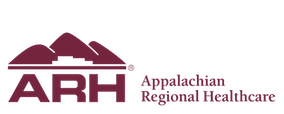Tug Valley ARH Nurse Extern Program Offers Answers, Experience
Though Tennisa Pack and Jessica Alfrey both earned their Associate’s degrees in nursing from Southern West Virginia Community and Technical College after following very different paths, they are alike when it comes to how much the Nurse Extern Program at Tug Valley ARH Regional Medical Center helped in their pursuit to becoming registered nurses (RNs). Ironically, after completing their studies, they both landed in the same Intensive Care Unit (ICU) at the hospital, providing highly skilled treatment to some of the most challenging patients.
Alfrey went to Southern directly from high school and knows that she eventually wants to become a Certified Registered Nurse Anesthetists (CRNA). Needless to say, she was thrilled when she was selected to work in the ICU at Tug Valley ARH Regional Medical Center after nabbing one of the hospital’s Nurse Extern slots. “To get into school working toward your CRNA you must have at least two years of critical care experience,” said Alfrey. “A lot of recent graduates aren’t able to be placed in the ICU right out of school, but after my Nurse Extern program experience, I had the basics and am now working in ICU.”
Pack, on the other hand, views her recent completed studies and upcoming sitting for the NCLEX exam, which is the last step in obtaining her RN licensure from the State Board of Nursing, as a long-held dream. “I always knew I wanted to be a nurse,” she said. “I watched my parents take care of their parents. I was probably seven-years-old when my grandmother moved in with us and maybe 13 or 14 when my grandfather began showing signs of Alzheimer’s. My parents showed them such respect that I knew I wanted to do this for others.”
“I became a licensed practical nurse (LPN) in 2001 and worked in a nursing home when my children were young and needed me, so I didn’t get my RN degree then,” she explained. “The children don’t need me as much now because they are 24, 22 and 12. I started my pursuit to becoming an RN in 2015 and completed it in 2017.” Along the way she never lost her nurturing tendencies and was voted “Most Caring” by the other students in her class at Southern.
In January, Pack and Alfrey began as Nurse Externs and, according to both, the experience allowed them to bring everything they were studying into focus. “I’m a very hands on learner,” said Alfrey. “I can read a book front to back and still not know how to do something, but show me or let me do it and I’ve got it. Having the Nurse Extern experience really helped me apply my studies to real life. I can’t say enough about all the nurses and other professionals in the ICU as they always had time to explain anything to me.”
Pack agrees about the help provided in the ICU. “They never seemed rushed or unwilling to take the time with me,” she said. “I could ask them anything!” Pack also feels that being a Nurse Extern in a smaller hospital broadens the experience. “You work with everyone in the hospital and every type of medical discipline. It’s very hands-on. In some of the bigger hospitals, the Nurse Externs just get to observe, but here you are expected and allowed to participate.”
Alfrey says that being a Nurse Extern brings a number of perks. “First, they pay you for the hours you work even though you are learning. I have been able to save most of that money and it will go toward my tuition to complete my BSN and CRNA. I know they are offering scholarships for employees and the children of employees to further their education so I’ll be applying for that too because I am now a RN at the hospital. But most of all, being a Nurse Extern gave me real experience. I wasn’t sure I wanted to be a nurse until my senior year in high school, but this experience completely confirmed my decision. I remember my first ‘code’ (cardiopulmonary arrest), I was applying chest compressions and it was quite the adrenal rush.”
Another thing both newly-minted RNs agree on is the fact that the Chief Nursing Officer, Paula Vaughan, not only knows everyone’s name, but also demonstrates unfailing encouragement. “I never saw her when she didn’t have a smile on her face,” said Alfrey. “She would greet us and encourage us to be our best every day.”
Pack notes that Vaughan is just one of the many reasons she enjoys her work in the ICU at Tug Valley ARH Regional Medical Center. “She is so supportive, but then so is everyone. We are a team caring for the community. I am honored to do this work.”
Vaughan feels that today’s nursing students are some of the best she has seen in her long career. “I’m just so proud of every one of our Nurse Externs, Vaughn said. “They really are the cream of the crop. I already have applicants for the next class and the quality is extraordinary. I love seeing them walk through the door on their first day. It’s great knowing when we hire them full-time we will have the next group of leaders ready for the challenges of providing great medical care.”


